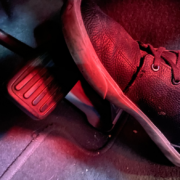January 21, 2025
Media Contact: Lisa McDonald, Vice President of Communications, (202)- 207-2829
Washington, DC – Today, NCL submitted testimony in support of SB49 before a Thursday hearing in the Maryland Senate Finance Committee.
January 21, 2025
The Honorable Pamela Beidle, Chair
Senate Finance Committee
Maryland General Assembly
3 East Miller Senate Office Building
Annapolis, MD 21401
RE: NCL support for SB 49 (Consumer Protection-Automatic Renewals)
Dear Chair Beidle,
On behalf of the National Consumers League (NCL), the nation’s oldest consumer advocacy organization, I write to express our strong support for SB 49 (cross-filed with HB 107), a bill introduced by Senator Gile that would promote fairness in the marketplace for automatically renewing subscription contracts.^1 As an organization that has long championed consumer rights and the protection of vulnerable populations from unfair, abusive, and deceptive trade practices, we are pleased to see Maryland considering such important legislation. We urge the committee to favorably report the measure with amendments to strengthen the legislation even further.
The average consumer pays two-and-a-half times what they originally estimated on monthly subscriptions.^2 When an individual attempts to cancel an automatic renewal, they often encounter burdensome cancellation processes. One survey found that more than half of respondents
reported an average of three months to cancel unwanted recurring payments.^3 That same study discovered that 71% of individuals lost more than $600 a year in unwanted payments.
NCL has been an active supporter of auto-renewal protections in other jurisdictions, including at the Council of the District of Columbia^4 and the Federal Trade Commission,^5 where rules set clear guidelines for both the provision and cancellation of automatically renewing subscription contracts. These measures were designed to enhance transparency, prevent deceptive practices, and ensure that consumers are able to easily cancel such subscriptions without unnecessary obstacles or undue financial burdens. We believe that SB 49, which reflects many of these same principles, is a step in the right direction toward safeguarding Maryland consumers from exploitation through automatic renewal clauses that can trap them into paying for services they no longer wish to receive or did not realize they signed up for in the first place.
While the Federal Trade Commission has finalized its click-to-cancel rule to take effect nationwide,^6 the future of this federal regulation is uncertain as a new presidential administration and new majorities in Congress have the means to undo the critical consumer protection. Regardless of the federal regulation’s status, Maryland has the opportunity to enact even stronger protections for its citizens through SB 49.
Compared to the federal rule, Senator Gile’s legislation goes further in protecting Marylanders by requiring sellers to provide an annual notice to consumers enrolled in an autorenewal plan, clearly reminding them of the terms of the plan and the cancellation methods available. Additionally, SB 49 includes safeguards against free trial conversion traps, a provision that is absent in the federal regulation.
There are however a few improvements that the committee should implement to better protect Maryland consumers.
First, require sellers to obtain a separate consent solely for the automatically renewing piece of the product, apart from any other transaction. Consumers too often believe they are purchasing a product without knowing that they are signing up for a subscription. While the clear and conspicuous disclosures proposed in SB 49 will go a long way in reducing this unfair, abusive, and deceptive trade practice, requiring separate consent for the subscription should significantly reduce any remaining confusion.
Second, require sellers to provide a notice to consumers before each automatic and recurring payment. While the annual notice in the bill is commendable, providing the same reminder (including the terms of the plan, the amount to be charged, and the cancellation methods) before each recurring payment—whether they be annually, monthly, or similarly regular basis—would greatly lessen consumer harm.
Third, prohibit sellers from obtaining a consumer’s credit card information to begin a free trial. Too many dishonest businesses enroll consumers in free trial conversion traps, using pre-given credit card information and hidden consent for the conversion to a paid subscription. SB 49’s notice requirement before conversion should dissuade this practice, prohibiting sellers from requiring consumers to provide their credit card information to begin a free trial would eliminate this unfair, abusive, and deceptive practice entirely.
Lastly, remove the deferral to federal regulation in subsection E (lines 20 through 23 on page 5). SB 49 in its current form already includes a number of additional safeguards missing in the federal regulation. Allowing covered entities to escape their obligations under Maryland law as long as they adhere to the lesser requirements in the federal regulations would be unnecessarily self-limiting. The Federal Trade Commission itself included a deferral to the states in its regulation, stating in 16 CFR § 425.7
(a) In general. This part shall not be construed as superseding, altering, or affecting any State statute, regulation, order, or interpretation relating to negative option
requirements, except to the extent it is inconsistent with the provisions of this part, and then only to the extent of the inconsistency.
(b) Greater protection under State law. For purposes of this section, a State statute,
regulation, order, or interpretation is not inconsistent with the provisions of this part if it affords any consumer greater protection than provided under this part.^7
NCL applauds Senator Giles for her leadership on this issue and appreciates the committee’s work to protect Maryland consumers. By enacting SB 49, Maryland would join a growing list of states and localities working to curb the negative effects of automatic renewal schemes and ensure that businesses are held accountable for their marketing and contract practices. NCL supports SB 49 and urges the committee to strengthen the bill even further before favorably
reporting the measure.
Should you or your colleagues have any questions, please do not hesitate to contact me at your convenience.
Sincerely,
Eden Iscil
Senior Public Policy Manager
National Consumers League
edeni@nclnet.org
cc: The Honorable Antonio Hayes, Vice Chair, Senate Finance Committee
The Honorable Dawn Gile
The Honorable Andrew Prusk
1 “Consumer Protection – Automatic Renewals,” Maryland General Assembly, accessed January 21, 2025. https://mgaleg.maryland.gov/mgawebsite/Legislation/Details/sb0049
2 “Subscription Service Statistics and Costs,” C+R Research, May 18, 2022. https://www.crresearch.com/blog/subscription-service-statistics-and-costs/
3 “Survey from Chase Reveals That Two-Thirds of Consumers Have Forgotten About At Least One Recurring Payment In The Last year,” Chase, April 1, 2021. https://media.chase.com/news/survey-from-chase-reveals
4 “D.C. Law 22-235. Structured Settlements and Automatic Renewal Protections Act of 2018,” Council of the District of Columbia, March 13, 2019. https://code.dccouncil.gov/us/dc/council/laws/22-235
5 “NCL welcomes FTC’s click-to-cancel rule,” National Consumers League, October 17, 2024. https://nclnet.org/ncl-welcomes-ftcs-click-to-cancel-rule/
6 “Federal Trade Commission Announces Final ‘Click-to-Cancel’ Rule Making It Easier for Consumers to End Recurring Subscriptions and Memberships,” Federal Trade Commission, October 16, 2024. https://www.ftc.gov/news-events/news/press-releases/2024/10/federal-trade-commission-announces-final-click-cancel-rule-making-it-easier-consumers-end-recurring
7 “Part 425—Rule Concerning Recurring Subscriptions and Other Negative Option Programs,” Code of Federal Regulations, January 16, 2025. https://www.ecfr.gov/current/title-16/chapter-I/subchapter-D/part-425
###
About the National Consumers League (NCL)
The National Consumers League, founded in 1899, is America’s pioneer consumer organization. Our mission is to protect and promote social and economic justice for consumers and workers in the United States and abroad. For more information, visit nclnet.org.
























